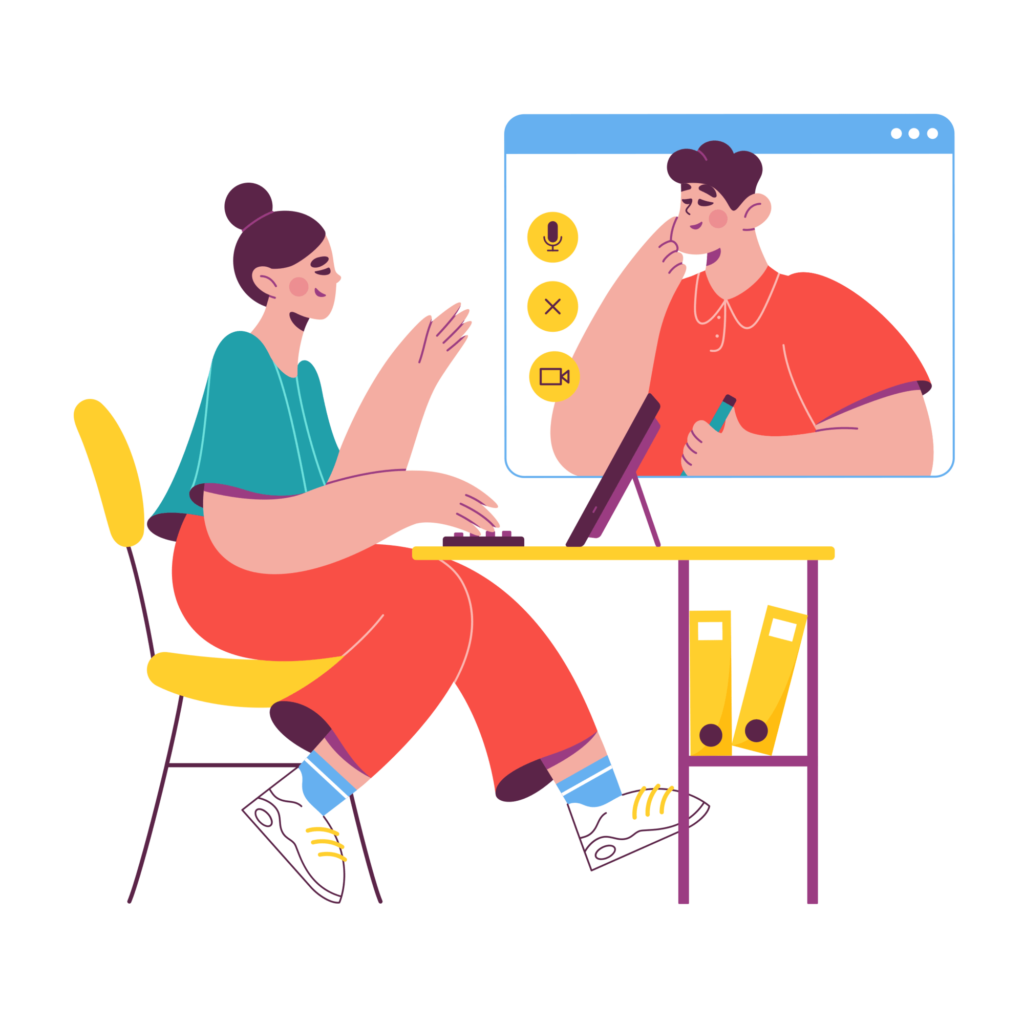A decade ago, technology was slowly making inroads into the recruitment process. However, the COVID-19 pandemic accelerated the adoption of technology in different facets of recruitment. Artificial Intelligence (AI) and Machine Learning (ML) technologies spearheaded the tech revolution in recruitment. AI-based tools are being used for recruitment processes like ATS, virtual assessments, video interviews and more.
The importance of online interviews
In 2023, online interviews are being widely used because of the convenience that they offer, coupled with their ability to accommodate remote work. Data reveals that 60% of hiring managers have used video hiring in their recruitment process while“74% of recruiters say video interviews have made their lives easier.”
Online interviews are becoming increasingly popular because they are preferred by both recruiters and candidates. Recruiters prefer them because they are much faster and more efficient than traditional hiring methods. Besides, they save time and money for employers and candidates since the candidates do not have to travel to any specific location. Candidates prefer online interviews because they allow facing the interview from a location of their choice.
Online interviews may be conducted in different ways to assess the candidate. Candidates may be asked to answer standardised questions or may be interviewed through personalised interviews.
Differences between standardised and personalised interviews
In a standardised interview, the interviewer asks all the candidates a specific set of questions. Standardised interviews help compare different candidates based on their replies to the same set of questions. Many a time, there might be multiple interviewers asking a candidate the same set of standardised questions. Every interviewer will assess the candidate from his or her perspective and provide neutral results. This is done to minimise interviewer bias.
A personalised interview, on the other hand, is more conversational. Here, the interviewer asks questions based on the answers given by the candidate. A personal interview reveals attributes about the personality of a candidate. An interviewer can observe a candidate’s response to the different questions, such as eye contact, hand gestures, facial expressions, etc., and draw a conclusion about him or her. Interviewers could also ask specific questions to determine whether the candidate is the right fit for the organisation. Personalised interviews help the interviewer get a measure of the emotional intelligence of the candidate, which is an important aspect of the modern hiring process.
A balanced mix of personalised and standardised interviews will help identify the right candidate for the organisation. However, there cannot be a one-size-fits-all interviewing strategy for hiring. The mix of standardised and personalised questions not only depends on the nature of the role but also the organisational culture, as well as several other factors.
The process of hiring the best talent based on personalised and standardised interviews can become quite complicated and time-consuming. This impacts the candidate experience negatively.
Fortunately, there are online hiring platforms that streamline the interviewing process and enhance the candidate experience.
How do online interview platforms facilitate standardised and personalised interviews?
An online interview platform is an AI-based hiring solution that enables HR professionals to conduct interviews remotely using video communication. The virtual interviews eliminate the need for in-person meetings. Online interview platforms are being widely adopted by recruiters across the globe. The global video interview market is expected to reach a staggering $529.53 million by 2027.
Recruiters can conduct live virtual interviews where the recruiter and candidate interact in real time. There is also the option of a one-way interview, wherein the candidate can record his or her response to preset questions.
Many of these tools allow the user to create personalised interviews, questionnaires and templates to assess the candidate, based on the job role.
Recruiters can create standardised interview questions to ensure a consistent and fair evaluation of candidates.
How do you customise the online interview platform?
A recruiter can use various interview options like live interviews, standardised interview templates, etc., to customise the platform according to specific hiring needs.
Standardised templates may be used to create questions relevant to the job role. Candidates could record the answers to these questions. Recruiters could conduct virtual interviews in real time. These interviews facilitate interactive conversations and personalised assessments.
Interview recordings, evaluations and feedback could be shared seamlessly between team members for collaborative decision-making.
Online interview platforms extract valuable insights from the interview data to identify top talent and enhance the hiring process.
Reach out to us to learn how you can give your recruitment process an edge.
Resources: legaljobs.io,zippia.com,linkedin.com



